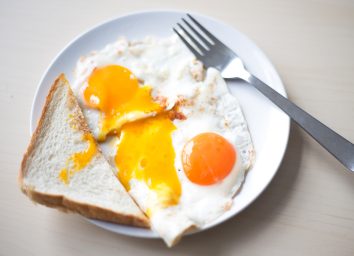9 Ways to Crush Hunger Cravings and Lose Weight Now

The desire to satisfy an intense craving can be so powerful, sometimes it feels uncontrollable. Just imagine this: You were so busy at work that you skipped both breakfast and lunch. Now it's 1:30 and you see an open package of Oreo cookies on the counter right next to a bag of baby carrots.
Which package is making your mouth water?
Uh-huh. You've been there. You know what it feels like being drawn by a force of nature toward the fat and sugar, the crunch of the cookie, and its creamy inside.
As strong as cravings are, you can overcome them with tricks and techniques and not the willpower you just don't have the energy to muster. Following are helpful suggestions to fight cravings and reduce overeating, according to dietitians and nutritionists. Read on, and for more on how to eat healthy, don't miss 15 Underrated Weight Loss Tips That Actually Work.
Understand the origin of cravings

Giving in to cravings doesn't mean you lack willpower or control. It means you're human. "The craving response is an evolutionary mechanism designed to protect you," explains nutritionist and blogger Dena Gershkovich, RDN, owner of TheArtsyPalate.com.
"When we haven't eaten for a while, our bodies crave foods that are high in fat and sugar because fat is the most efficient source of energy, and sugar is quickly absorbed by the body," she explains. People make the mistake of restricting food and avoiding even nutritious between-meal snacks in an attempt to lose weight, but "the best way to avoid cravings is to prevent your hunger from building too much by eating regularly throughout the day," Gershkovich says.
Don't restrict or deny, just delay
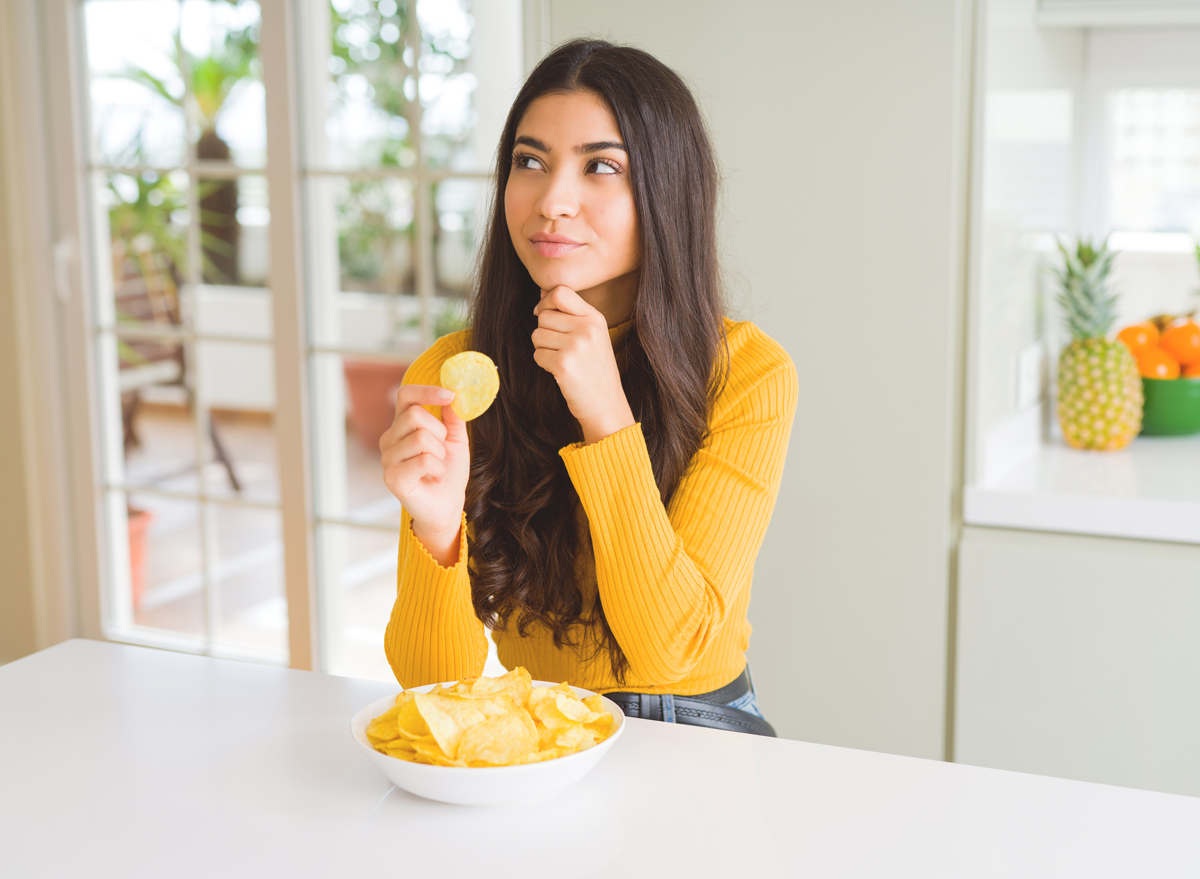
Cravings are strong, and they only get stronger when you try to fight them. "Telling yourself the food you crave is 'bad' actually increases cravings for it," says Melissa Mitri, RD, a dietitian for Wellness Verge. "Instead, allow yourself to eat a little bit of what you really want so in time, it loses its appeal."
Or try the delay technique, she says. "Instead of giving in right away, tell yourself that it's okay to wait. Often, this helps to reduce the likelihood of spontaneous eating in the moment. Plus, when you know you can have it at a later time, it becomes less urgent."
Never skip breakfast
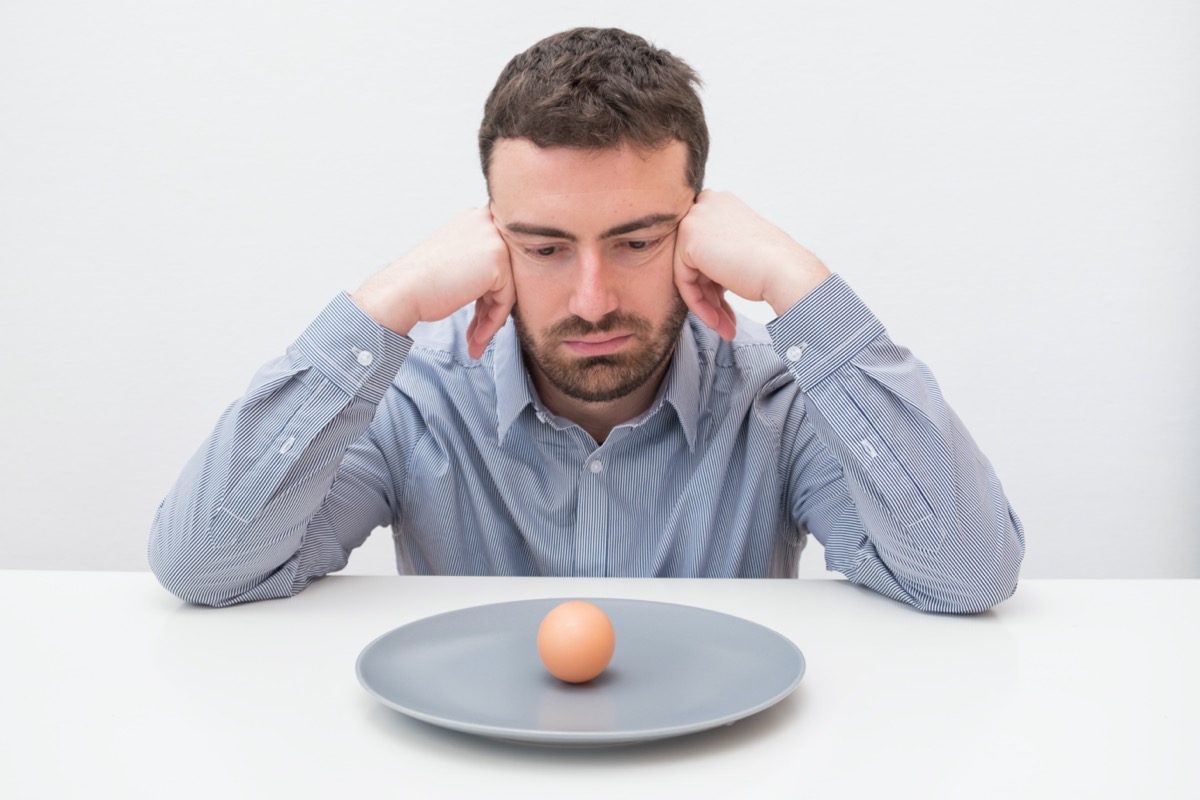
"Breakfast helps you start your day right and regulate blood sugar levels into the morning hours which also limits cravings later in the day," says nutritionist and personal trainer Jamie Hickey, RD, with Truism Fitness. Breakfast beats back cravings even better when it's high in protein. A study in Obesity by researchers at the University of Missouri found that eating a protein-rich breakfast effectively reduces brain signals that influence reward-driven eating behavior (i.e. scarfing barbecue-flavored potato chips; you know what we mean.)
Calm cravings with a cup of tea

"Tea helps comfort and calm a hungry stomach while also hydrating the body so it feels full," says clinical nutritionist Christina Towle, founder of Hudson Valley Nutrition. She recommends teas like those from Good Pharma containing "adaptogens that add an extra boost of botanicals that satisfy the body without calories." Adaptogens are herbals that some small research studies suggest may counteract the body's stress response.
Breathe deeply

Pause and take a few deep breaths before opening that bag of Tate's Cookies. "Breathing can help you hit pause when you're experiencing an intense craving," says Mitri, who is also president-elect of the Connecticut Academy of Nutrition and Dietetics. "It works because it can help you to slow down and relax, so you're able to evaluate the situation and what's happening." Remind yourself that cravings are normal, and you will get through it.
Distract yourself when you want to snack

When you are just dying to dive into a pint of chocolate ice cream, sidetrack yourself by doing something physical, even for just a few minutes. "Distract yourself by listening to a podcast or some music, walking the dog, hitting the yoga mat; do anything to take your mind off the food," says nutritionist Julie Mancuso, registered nutritionist and owner of JM Nutrition, a Toronto-based counseling service by registered dietitians and nutritionists. "Cravings only last a few minutes, so by the time you are finished with your activity, your craving will be a distant memory."
Avoid distraction while snacking
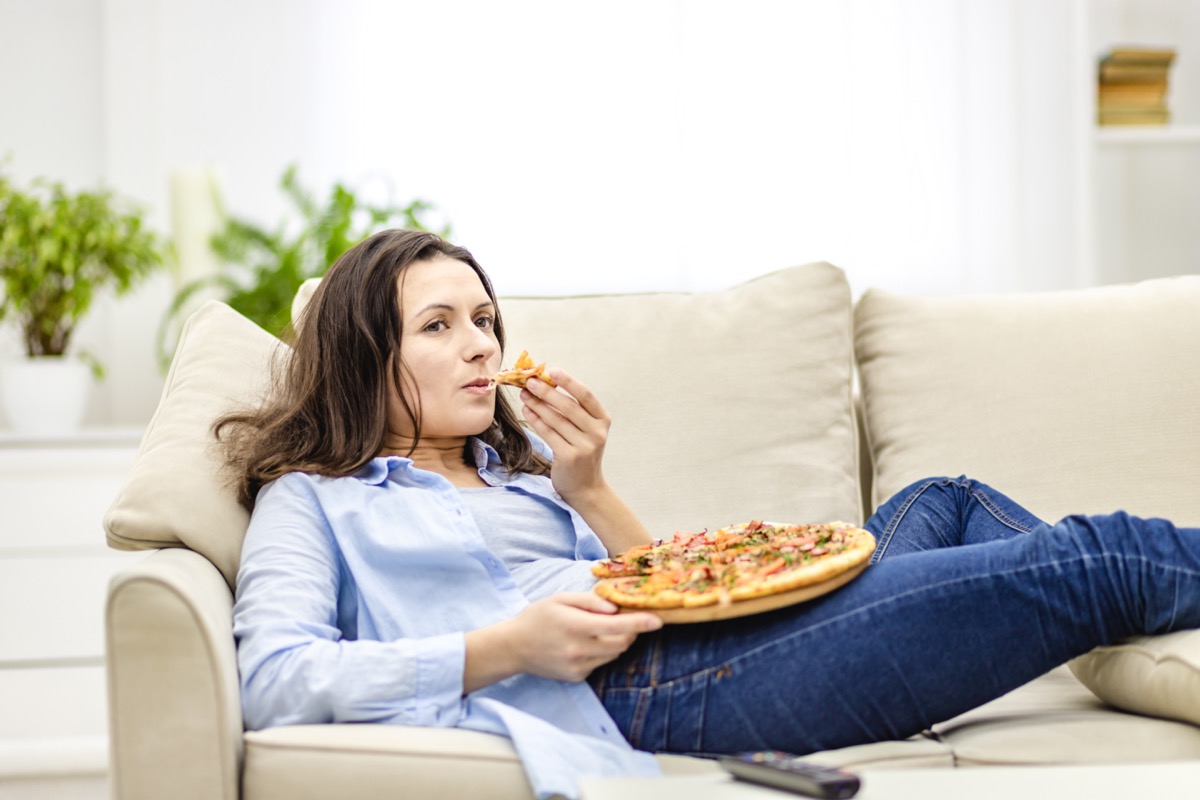
While distracting yourself may be useful for drawing your attention away from that bag of chips, certain consistent distractions can interrupt signals from your stomach telling your brain that you've had enough of what you were craving. A 2019 study in the journal Psychology & Behavior found that using smartphones while eating increased the number of calories participants ate.
Avoid 'diet' foods and drinks with artificial sweeteners

Foods made with artificial sweeteners may reduce your calorie intake when you're eating them, but studies have linked them to consuming more calories throughout the day, says registered dietitian Trista Best, MPH, RD, LD, with Balance One. Best suggests reducing or eliminating refined and artificial sugar from your diet if you are experiencing issues with overeating or cravings
Adopt a binge blocking meal plan
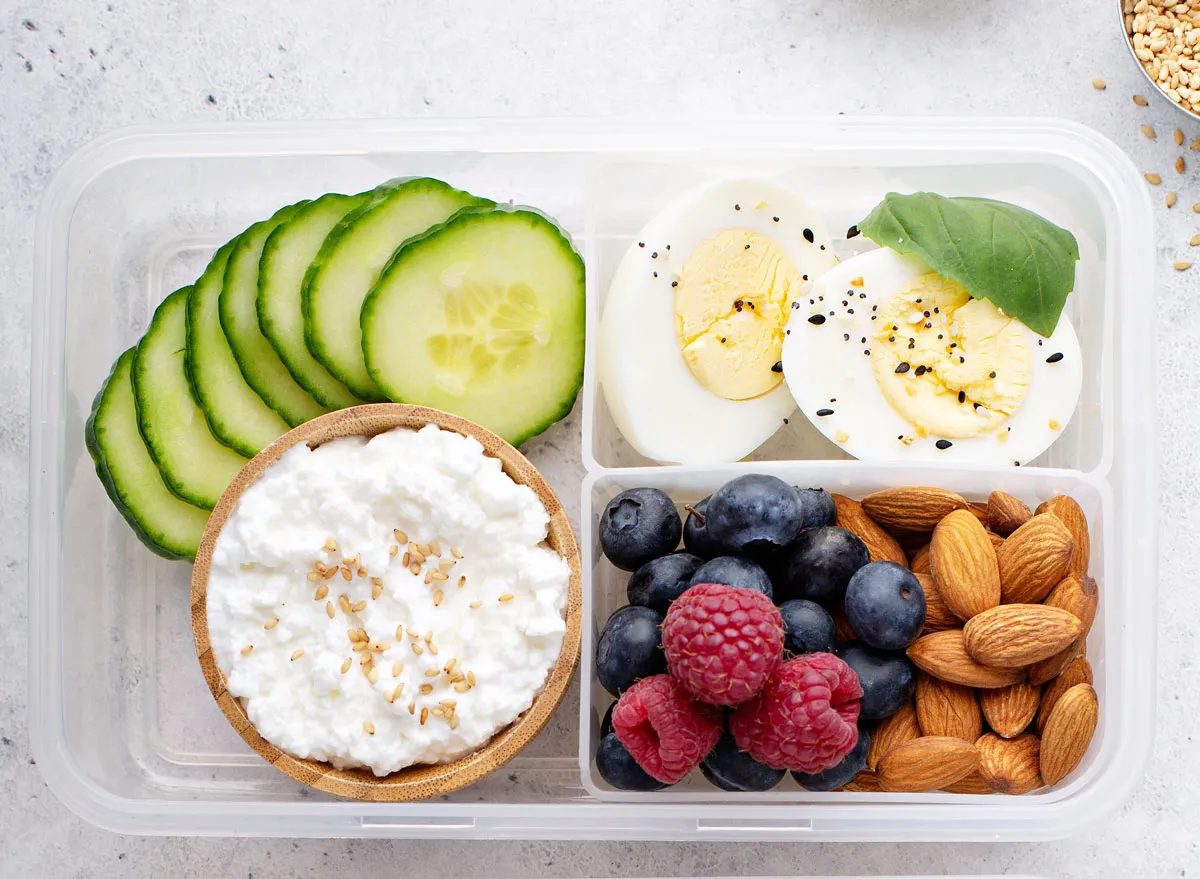
Stay satisfied all day—and avoid cravings that lead to overeating by eating these satiating foods at mealtimes:
- Breakfast: A glass of milk, 2 large eggs (each contains about 7 grams of filling protein), and an apple (4 grams of filling fiber).
- Lunch: Eat ½ cup of chicken salad on whole-wheat bread with a glass of unsweetened iced tea and you won't be hungry at 3 pm.
- Dinner: Sear 4 to 8 ounces of tuna, salmon, or steak. Add a half cup of steamed broccoli for low-calorie fiber, and a glass of ice water (it'll stop you from scrambling for seconds).
Those are basic guidelines. For specific recipes to help you build a meal plan that fights cravings, read 10 Weight Loss Dinners that Actually Satisfy, Say Dietitians.
Read this next:

